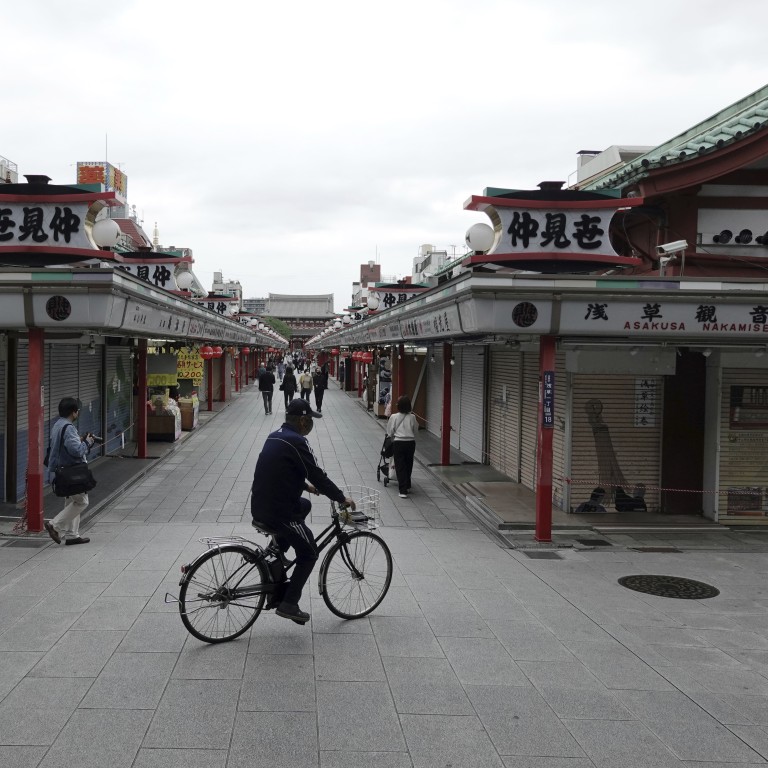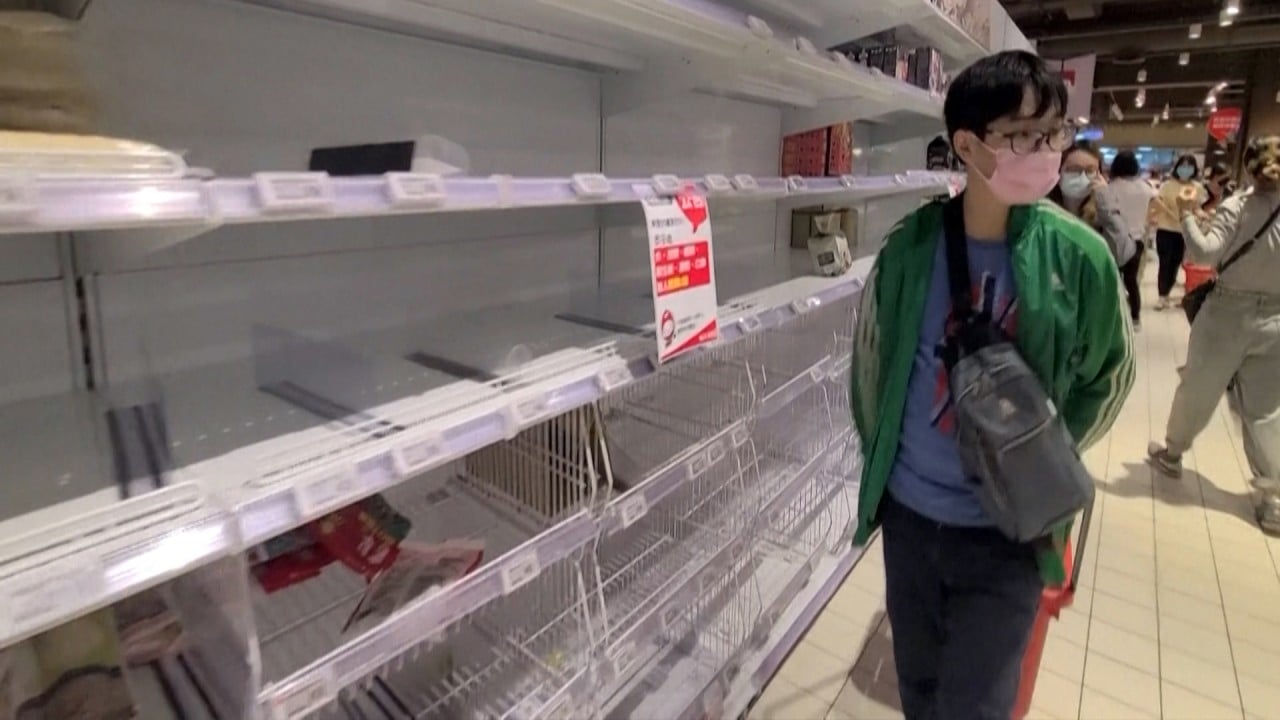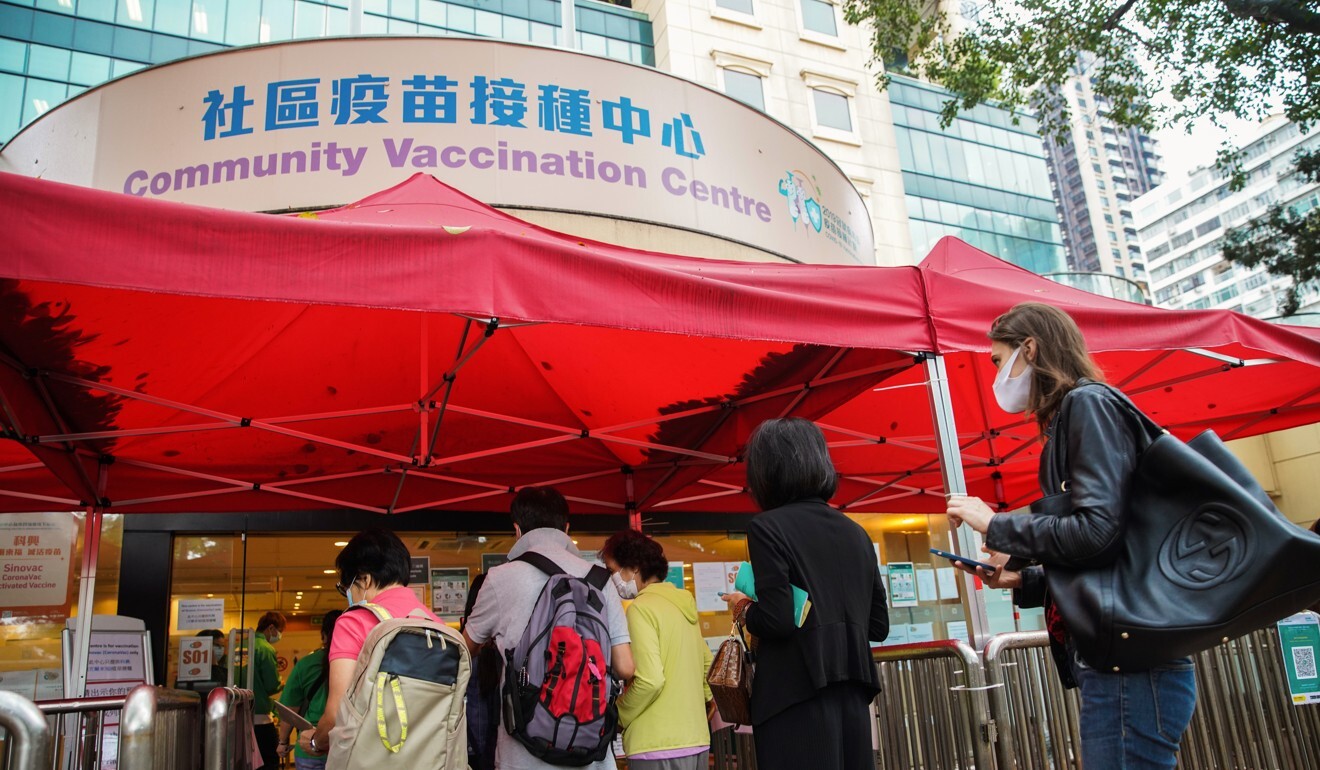
Coronavirus: Hong Kong to tighten entry requirements for arrivals from seven countries including Japan, Singapore and Malaysia
- Change adds seven days of mandatory isolation for travellers from Singapore, while new requirement for arrivals from six other countries is pre-departure negative test result
- City records just one new Covid-19 infection, an imported case from Indonesia
The government said from Friday, unvaccinated travellers from Japan, Malaysia, Singapore, Argentina, Italy, Kenya and the Netherlands, would have to serve 21 days of quarantine at designated hotels and also present proof of a negative coronavirus test conducted 72 hours before boarding their flights.
Vaccinated people must quarantine at government-designated hotels for 14 days and self-monitor for another week, with compulsory testing on the 16th and 19th day. They must also present proof of vaccination and a negative virus test before departing for the city.
‘Vaccine bubble’ incentives aren’t enough, city must share facts about jabs: experts
The change adds seven days of mandatory isolation for travellers in both groups from Singapore, while the new requirement for arrivals from the remaining six countries is the pre-departure negative test result.
The government on Monday said the decision was taken “in view of the persistent unstable epidemic situation in various overseas places”, as well as the prevalent transmission and outbreaks of cases involving the more transmissible and potentially more serious mutant virus strains.
Those seven countries have seen an uptick of coronavirus cases recently, with Argentina recording as many as 292,103 new infections in the past fortnight. Japan has seen 80,763 cases in the same period, while Singapore has had 367.

01:39
Panic buying in Taiwan as new Covid-19 rules imposed amid spike in coronavirus infections
Monday also saw the indefinite suspension for the second time of the quarantine-free travel bubble between Hong Kong and Singapore, which had been set to launch on May 26.
Hong Kong confirmed just one new imported coronavirus infection, from Indonesia, on Monday, pushing the city’s official tally to 11,825 confirmed cases, with 210 related deaths. Fewer than five preliminary-positive cases were also reported.
The developments came as government pandemic adviser Professor Yuen Kwok-yung warned that Hong Kong’s low Covid-19 vaccination rate could jeopardise future deals with suppliers if more residents do not step forward to take the shots.

Yuen, speaking to reporters outside screening firm BGI’s lab, urged Hongkongers to get inoculated while they could still choose which jab they would like to take.
“Even if you can pay for it, why would the supplier send [their vaccines] to Hong Kong if people don’t take the jab?” he said after a lab inspection that followed the emergence of questions around an employee’s positive test.
Since the government’s vaccination drive began in late February, only about 1,180,450 people, or 15.7 per cent of the city’s 7.5 million population, have received their first dose. Almost 803,850 have taken two jabs.
Secretary for the Civil Service Patrick Nip Tak-kuen, meanwhile, said starting from the end of May, certain groups of government employees would need to be vaccinated. This would replace the requirement for them to be tested for the virus on a regular basis, he added.
Nip, speaking at a Legislative Council meeting, estimated tens of thousands of employees who were on the front line of pandemic control would be included in these groups.
Hong Kong, Singapore put travel bubble on hold for second time
He said he believed the proportion of vaccinated civil servants should be higher than the city’s overall inoculation rate. He said civil servants had to take the initiative to get Covid-19 jabs because they served the public.
The government had allowed them to get vaccinated during working hours and take sick leave if they felt unwell because of side effects, he added. He pledged to look into complaints of government departments asking employees to present a medical certificate before their sick leave application could be approved.
Health authorities reported that a 50-year-old man died on Sunday, 13 days after he received his second dose of the Sinovac vaccine. The provisional cause of death was brainstem haemorrhage.
More than 30 people have died after taking a jab in Hong Kong, but no link between the vaccines and the deaths have been established.
Separately, Yuen was investigating the case of a 29-year-old BGI worker, who was confirmed as infected on May 7. But authorities later removed the man from the official tally of cases because he was found with the strain first reported in Wuhan which had not been circulating in Hong Kong recently. They believed his positive test could have been caused by contamination.
The man, who was vaccinated with two doses of the BioNTech jab, had not travelled to mainland China recently.
Yuen said the man did not test positive for specific antibodies which would have indicated he had been infected, adding that none of his close contacts tested positive for Covid-19: “We have reason to believe this is not a real infection.”
He said the worker was likely to have been contaminated with viral DNA through inhalation when he rested in a room next to the lab before undergoing a Covid-19 test.
“DNA is very stable, it can stay in the air for a long time,” he said.
Taiwan’s Covid-19 infections surge with 333 new local cases
Yuen believed it was an isolated incident and emphasised the likelihood of viral DNA transmission was “extremely low”.
“There is no need to worry about this incident causing an outbreak in the lab,” he said.
He suggested turning on ultraviolet lights when employees left the facility to kill the DNA and reduce the risk of contamination among workers.
Yuen had inspected Onco Medical Laboratory, which was involved in processing the man’s sample, and the BGI facility where he worked, and said operating procedures met standards.
Environmental samples were taken at both places but the results were pending, he added.
Additional reporting by Tony Cheung

